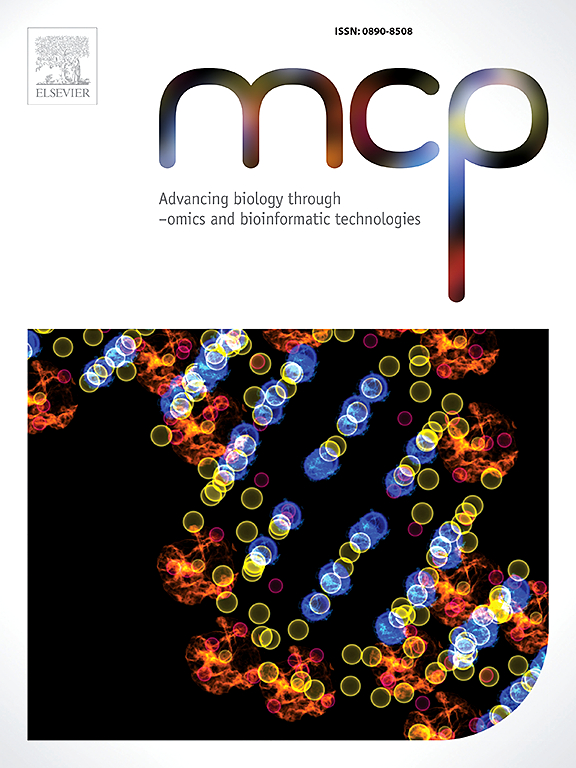TNFRSF11B promotes the progression of bladder cancer through PI3K/AKT signaling pathway
IF 2.3
3区 生物学
Q3 BIOCHEMICAL RESEARCH METHODS
引用次数: 0
Abstract
TNFRSF11B contributes to tumorigenesis in many malignancies. Nevertheless, its function and underlying tumorigenic mechanism in bladder cancer (BC) has been rare.
The clinical significance and relevant signaling pathway of TNFRSF11B in BC were assessed using bioinformatic analysis. The determination of TNFRSF11B expression was conducted in bladder tissues and BC cells. BC cells were subjected to functional experiments to evaluate their ability to proliferate, migrate, and invade. Cell apoptosis experiments were conducted. The protein levels of markers associated with epithelial-mesenchymal transition (EMT) and molecules linked to the PI3K/AKT pathway were assessed. To evaluate the effect of the PI3K/AKT pathway on TNFRSF11B, LY294002, a PI3K/AKT pathway inhibitor, was utilized. TNFRSF11B exhibited significant upregulation in both BC tissues and various cell lines. Inhibited TNFRSF11B expression impeded the growth, movement, infiltration of BC cells. Conversely, the ultimate outcome varied when TNFRSF11B was overexpressed. In vivo assay further confirmed the above results. Furthermore, TNFRSF11B promoted malignant traits by controlling the PI3K/AKT pathway. In BC, TNFRSF11B exhibits elevated expression levels and has a substantial tumor-promoting role in BC via the PI3K/AKT pathway. Importantly, TNFRSF11B may represent a valuable prognostic tumor marker for BC treatment.
TNFRSF11B 通过 PI3K/AKT 信号通路促进膀胱癌的进展。
TNFRSF11B 在许多恶性肿瘤中都有助于肿瘤的发生。然而,它在膀胱癌(BC)中的功能及其潜在的致瘤机制却很少见。本研究利用生物信息学分析评估了TNFRSF11B在膀胱癌中的临床意义和相关信号通路。在膀胱组织和BC细胞中测定了TNFRSF11B的表达。对 BC 细胞进行功能实验,评估其增殖、迁移和侵袭能力。还进行了细胞凋亡实验。评估了与上皮-间质转化(EMT)相关的标记物和与 PI3K/AKT 通路相关的分子的蛋白水平。为了评估 PI3K/AKT 通路对 TNFRSF11B 的影响,使用了 PI3K/AKT 通路抑制剂 LY294002。TNFRSF11B在BC组织和各种细胞系中均表现出明显的上调。抑制 TNFRSF11B 的表达会阻碍 BC 细胞的生长、移动和浸润。相反,当TNFRSF11B表达过高时,最终的结果也不尽相同。体内试验进一步证实了上述结果。此外,TNFRSF11B通过控制PI3K/AKT通路促进恶性特征。在BC中,TNFRSF11B的表达水平升高,并通过PI3K/AKT通路对BC的肿瘤有实质性的促进作用。重要的是,TNFRSF11B可能是一种有价值的预后肿瘤标志物,可用于BC的治疗。
本文章由计算机程序翻译,如有差异,请以英文原文为准。
求助全文
约1分钟内获得全文
求助全文
来源期刊

Molecular and Cellular Probes
生物-生化研究方法
CiteScore
6.80
自引率
0.00%
发文量
52
审稿时长
16 days
期刊介绍:
MCP - Advancing biology through–omics and bioinformatic technologies wants to capture outcomes from the current revolution in molecular technologies and sciences. The journal has broadened its scope and embraces any high quality research papers, reviews and opinions in areas including, but not limited to, molecular biology, cell biology, biochemistry, immunology, physiology, epidemiology, ecology, virology, microbiology, parasitology, genetics, evolutionary biology, genomics (including metagenomics), bioinformatics, proteomics, metabolomics, glycomics, and lipidomics. Submissions with a technology-driven focus on understanding normal biological or disease processes as well as conceptual advances and paradigm shifts are particularly encouraged. The Editors welcome fundamental or applied research areas; pre-submission enquiries about advanced draft manuscripts are welcomed. Top quality research and manuscripts will be fast-tracked.
 求助内容:
求助内容: 应助结果提醒方式:
应助结果提醒方式:


